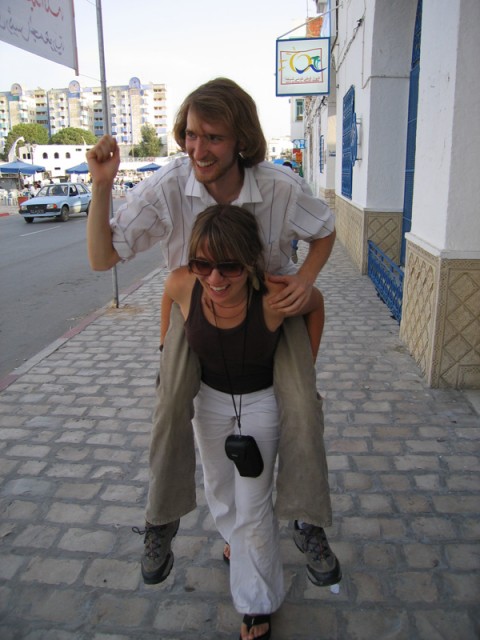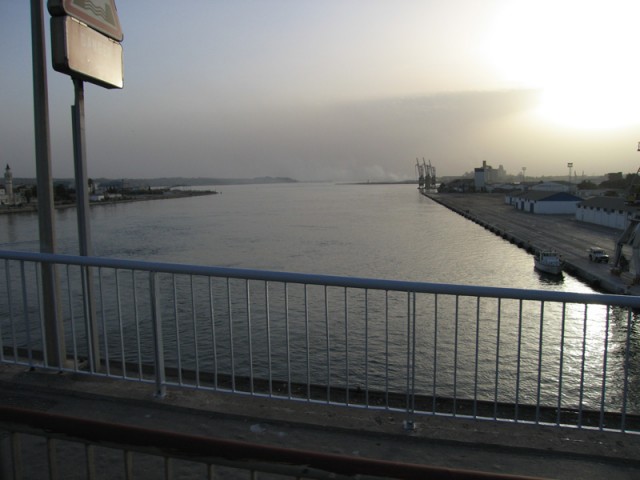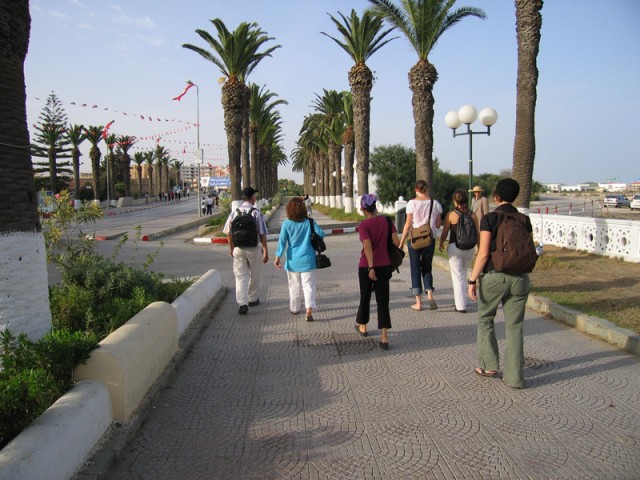
Bizerte has always been an important coastal port, once serving as the base of operations for several Muslim corsair fleets. Originally, it was a Phoenician port. the Phoenicians called it Hippo Diarrhytus and were the first people to dig a canal between the sea and Lac Bizerte, creating a vast inland harbor. When the Romans showed up, they improved the canal and built many of the typical Roman necessities in town. Later on, the Arabs changed the name to Benzert. Finally, it changed to Bizerte. During the 16th century, Bizerte found itself in the front lines of the Turco-Spanish struggles. Charles V punished the town for supporting the corsair Barbarossa with a brutal raid in 1535 which caused a building boom shortly there after to repair the city.
The French took over the city early on in the occupation of Tunisia, realizing it’s strategic importance. After the completion of the Suez Canal, the French brought some of the dredging equipment to Bizerte to enlarge and deepen the canal for purely “commercial” interests. They subsequently turned it into a huge naval base and went so far as to hold onto the town well after independence, only handing it over after Tunisian military action in 1961 in which 1000 Tunisians lost their lives. From the French legacy, the town still is dominated by heavy industry, housing the first blast furnace in Africa among other large industrial complexes. more recently, a silicon fab has been built outside of town by a German company. Hi-tech is moving into Tunisia in a big way and using Bizerte as its beachhead.

Looking into the old harbor.
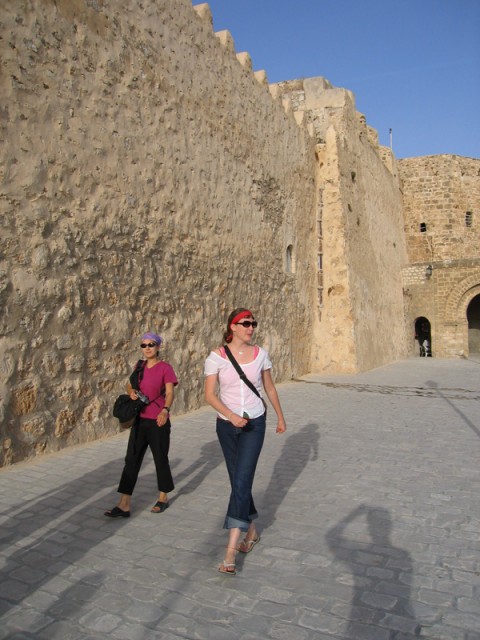

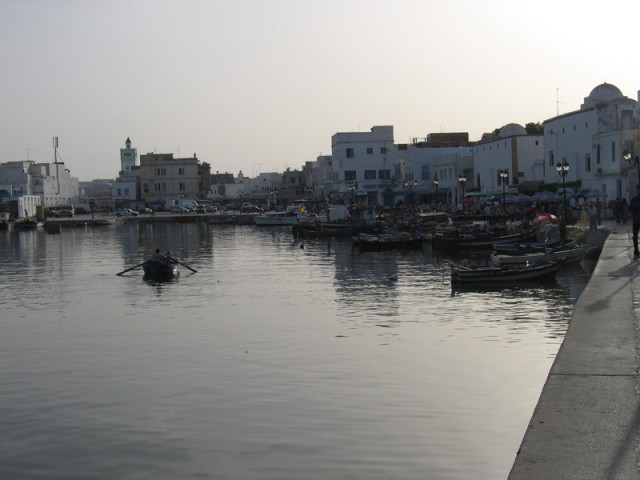
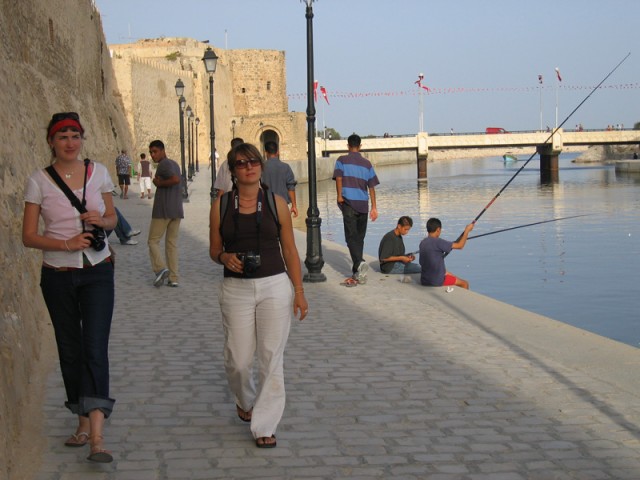
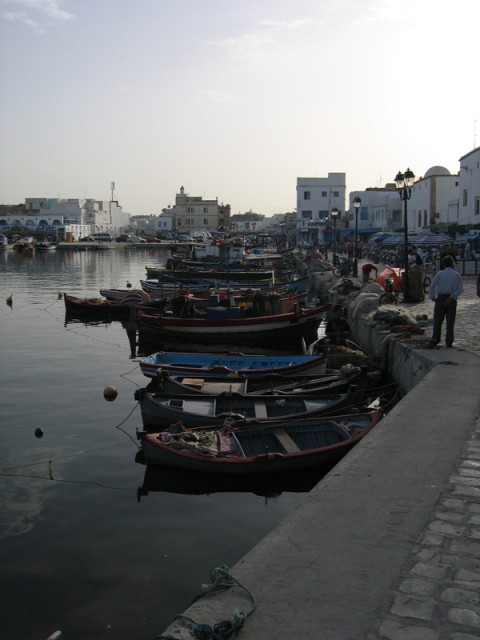
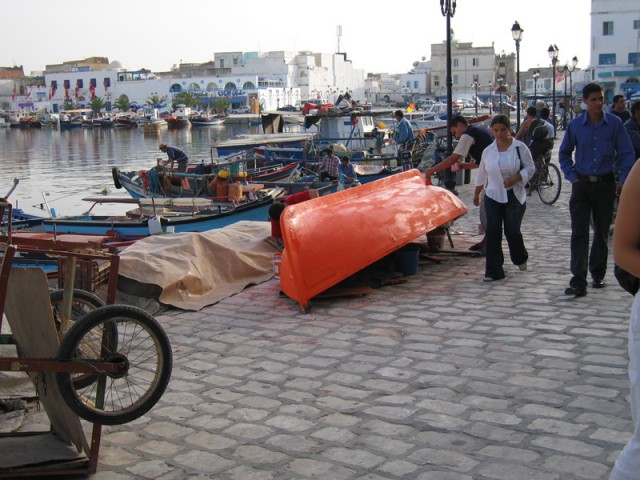
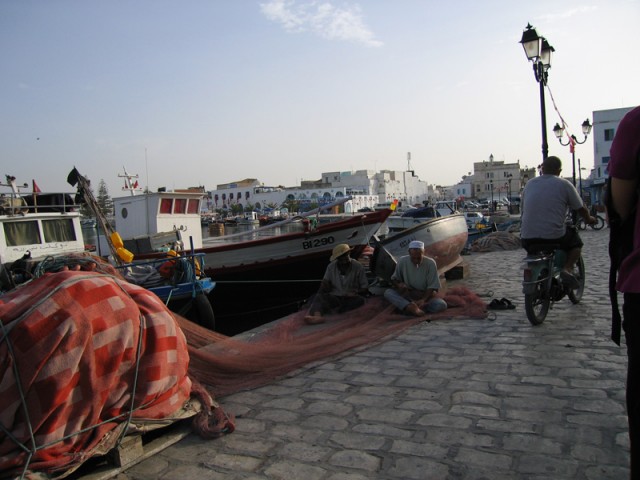

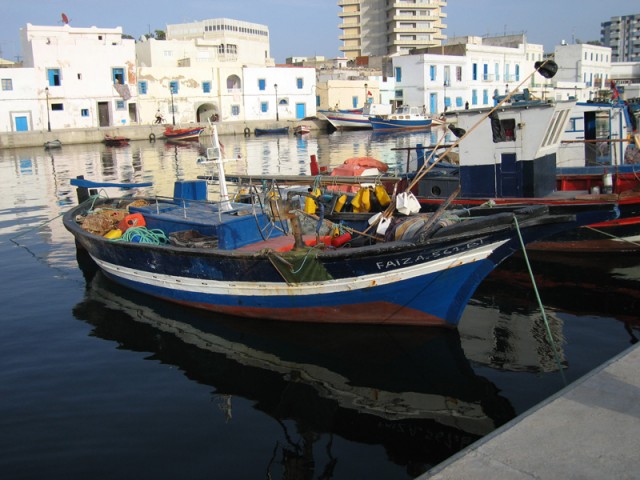
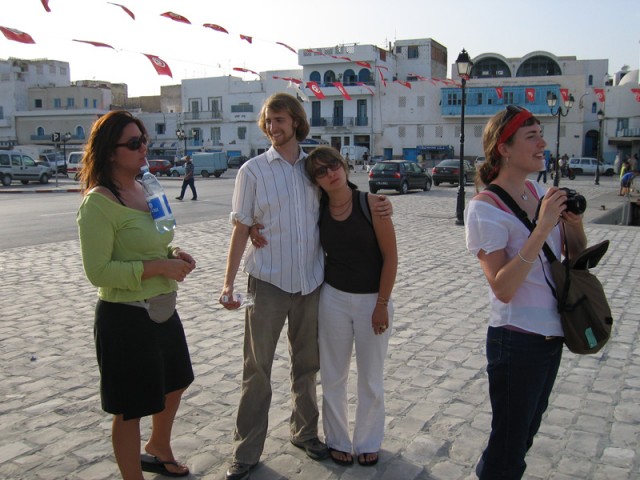
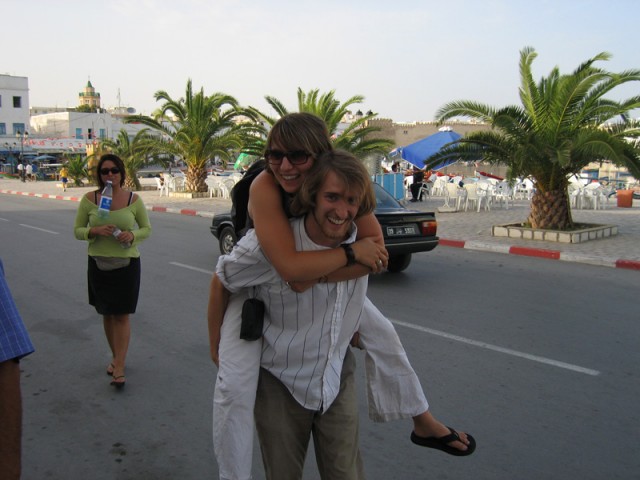
Anne and Joey took turns giving each other piggy back rides.
